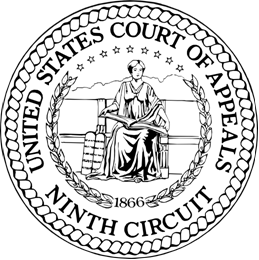Multiple Whistleblowers and First-to-File
This archive displays posts tagged as relevant to multiple whistleblowers and first-to-file issues in whistleblower litigation. You may also be interested in our pages:
April 27, 2016
Michigan and 34 other states reached an agreement in principle to settle allegations against Wyeth, a subsidiary of Pfizer, Inc. The settlement will resolve allegations that Wyeth knowingly underpaid rebates owed under the Medicaid Drug Rebate Program for the sales, Protonix Oral and Protonix IV between 2001 and 2006. Both are drugs that are used to treat conditions such as acid reflux. Under the settlement Wyeth agreed to pay $784.6 million to the United States and the States. Over $371 million of this amount will go to the Medicaid Program. The settlement stems from two whistleblower lawsuits which were filed in the United States District Court for the District of Massachusetts. The United States, 35 states (including Michigan) and the District of Columbia intervened in the lawsuits. NY, NJ, MI, WA$2 Million SEC Whistleblower Award To Be Split Among Three Whistleblowers — But The First To The Commission Gets The Most
Posted 03/10/16
 The SEC has announced that its most recent whistleblower award, of almost $2 million, will be split among three whistleblowers — but not evenly. The first whistleblower, identified only as “Claimant 1,” will receive about $1.8 million. The other two whistleblowers will share about $130,000.
The SEC whistleblower program was inspired by, and roughly based on, The False Claims Act (FCA), oft-described...
The SEC has announced that its most recent whistleblower award, of almost $2 million, will be split among three whistleblowers — but not evenly. The first whistleblower, identified only as “Claimant 1,” will receive about $1.8 million. The other two whistleblowers will share about $130,000.
The SEC whistleblower program was inspired by, and roughly based on, The False Claims Act (FCA), oft-described...
October 7, 2015
Kentucky-based nursing home pharmacy PharMerica Corp. agreed to pay $9.25 million to resolve allegations it violated the False Claims Act by soliciting and receiving kickbacks from pharmaceutical manufacturer Abbott Laboratories in exchange for promoting the anti-epileptic prescription drug Depakote for nursing home patients. The settlement is part of the continuing fallout of the $1.5 billion settlement Abbott entered into with the government in May 2012 to resolve Abbott’s liability under the False Claims Act for alleged kickbacks to nursing home pharmacies, including PharMerica. The settlement partially resolves allegations raised in two whistleblower lawsuits brought by former Abbott employees Richard Spetter and Meredith McCoyd under the qui tam provisions of the False Claims Act. Ms. McCoyd will receive a whistleblower award of $1 million from the federal share of the settlement amount. Whistleblower InsiderSeptember 21, 2015
Non-profit healthcare organization Adventist Health System agreed to pay $115 million to settle allegations it violated the False Claims Act by maintaining improper compensation arrangements with referring physicians and by miscoding claims. The allegations originated in two whistleblower lawsuits filed by former Adventist hospital employees Michael Payne, Melissa Church and Gloria Pryor under the qui tam provisions of the False Claims Act. The will receive a yet-to-be-determined whistleblower award from the government’s recovery. DOJJune 24, 2015
For-profit education company Education Affiliates agreed to pay $13 million to settle charges it violated the False Claims Act by submitting false claims to the Department of Education for federal student aid. The Maryland-based company operates 50 campuses under various trade names, including All State Career, Fortis Institute, Fortis College, Tri-State Business Institute Inc., Technical Career Institute Inc., Capps College Inc., Driveco CDL Learning Center, Denver School of Nursing and Saint Paul’s School of Nursing. According to the government, the company engaged in a variety of fraudulent acts to increase admissions including admitting unqualified students, creating false high school diplomas, falsifying students’ federal aid applications, and referring prospective students to “diploma mills” to obtain invalid online high school diplomas. The allegations first arose in five whistleblower lawsuits filed under the qui tam provisions of the False Claims Act. As part of this resolution, the five whistleblowers will receive whistleblower award payments totaling approximately $1.8 million. Whistleblower InsiderJune 25, 2014
Omnicare Inc., the nation’s largest provider of pharmaceuticals and pharmacy services to nursing homes, agreed to pay $124M to resolve charges it violated the Anti-Kickback Statute and the False Claims Act by providing improper financial incentives to skilled nursing facilities in return for their continued selection of Omnicare to supply drugs to elderly Medicare and Medicaid patients. The government’s action against Omnicare originated with two lawsuits filed by whistleblowers under the qui tam provisions of the False Claims Act. The first whistleblower, former Omnicare employee Donald Gale, will receive roughly $17M out of the government’s recovery. Whistleblower InsiderEMC - Procurement Fraud/Education ($95.5 million)
A Constantine Cannon attorney represented two whistleblowers in a False Claims Act case alleging Education Management Corporation violated the recruiter incentive compensation ban, enrolling students regardless of whether they were suitable candidates. In November 2015, the company agreed to pay $95.5 million to settle the action, the largest False Claims Act settlement to date involving the Department of Education. The two whistleblowers (along with several others) received a whistleblower award of $11.3 million. Read more -- Business Insider, DOJ, PR Newswire, CC.Ninth Circuit Victory For Whistleblowers In Narrowing "Public Disclosure" And "First-To-File" Bars To Bringing Qui Tam Actions
Posted 07/10/15
 In a major victory for whistleblowers, the Ninth Circuit in United States ex rel. Hartpence v. Kinetic Concepts, Inc. narrowed the reach of two significant bars to bringing qui tam lawsuits under the False Claims Act. Under the so-called "public disclosure" bar, the Ninth Circuit reversed its own precedent and ruled the "original source" exception to the bar does not require the whistleblower to have played a role...
In a major victory for whistleblowers, the Ninth Circuit in United States ex rel. Hartpence v. Kinetic Concepts, Inc. narrowed the reach of two significant bars to bringing qui tam lawsuits under the False Claims Act. Under the so-called "public disclosure" bar, the Ninth Circuit reversed its own precedent and ruled the "original source" exception to the bar does not require the whistleblower to have played a role...
DC Circuit Limits Reach Of False Claims Act First-To-File Bar
Posted 07/2/15
 By the C|C Whistleblower Lawyer Team
And yet another appellate court decision reining in the reach of the first-to-file bar for whistleblowers under the False Claims Act. This one decided by the DC Circuit in United States ex rel. Heath v. AT&T. Before the Court was the question of whether a whistleblower action against AT&T for allegedly engaging in a nationwide scheme of overcharging the government was barred...
By the C|C Whistleblower Lawyer Team
And yet another appellate court decision reining in the reach of the first-to-file bar for whistleblowers under the False Claims Act. This one decided by the DC Circuit in United States ex rel. Heath v. AT&T. Before the Court was the question of whether a whistleblower action against AT&T for allegedly engaging in a nationwide scheme of overcharging the government was barred...